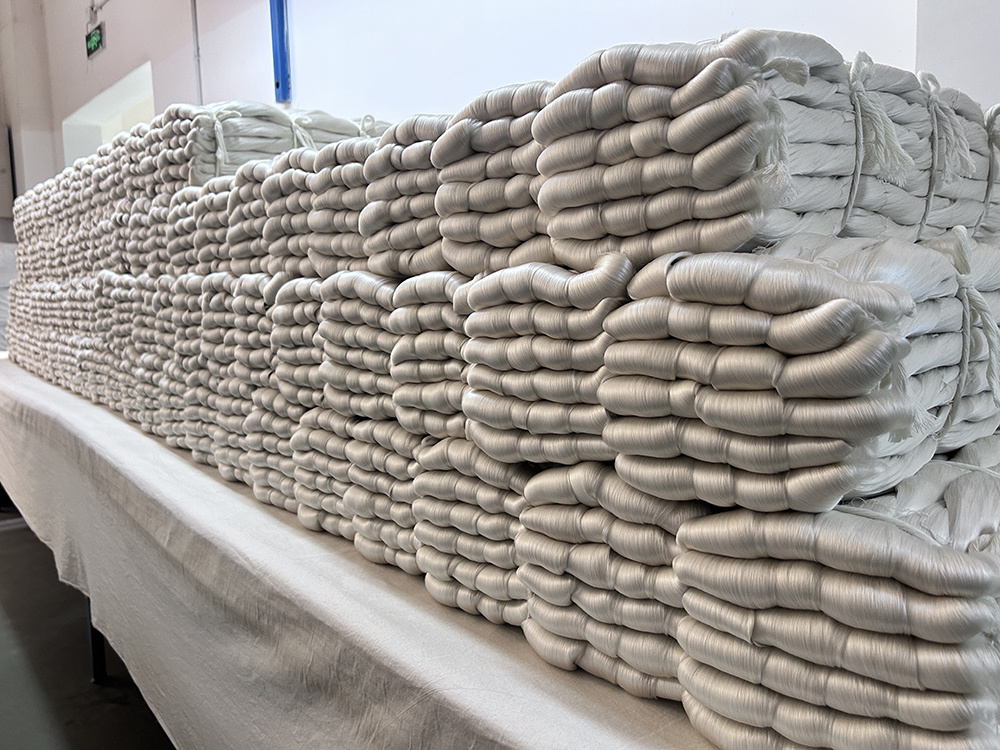Silk
High-grade textiles: silk with its smooth feel, elegant texture and good air permeability, moisture absorption, is often used to make high-grade clothing, bedding and household goods. Silk clothing is not only comfortable to wear, but also has good warmth and breathability, and is a representative of high-end textiles.
Key words:
Dehong Zhengxin
Mulberry planting
Green Silk
The Silk Road
Classification:
Product Description
As a natural fiber, silk has excellent physical and chemical properties, so it is widely used in many fields. The following are the main application areas of silk:
1. Textile and clothing
High-grade textiles: silk with its smooth feel, elegant texture and good air permeability, moisture absorption, is often used to make high-grade clothing, bedding and household goods. Silk clothing is not only comfortable to wear, but also has good warmth and breathability, and is a representative of high-end textiles.
Fashion Design: Silk's luster and texture make it a fashion darling, often used by designers to create unique styles of clothing and accessories.
2. Medical Supplies
Medical materials: Silk is widely used in the medical field because of its good biocompatibility and antibacterial properties. It can be used to make medical supplies such as medical sutures, dressings, and surgical gowns to help reduce the risk of infection and promote wound healing.
Biomedical Engineering: Silk fibers can also be used to make biomedical engineering materials such as artificial blood vessels, tissue engineering scaffolds and drug delivery systems to help tissue repair and regeneration.
3. Cosmetics and health products
Skin care products: silk is rich in a variety of amino acids and protein, which has a good nourishing and moisturizing effect on the skin. Therefore, silk is used to make skin care products such as masks, skin creams and lotions to provide nutrition and moisture to the skin.
Health product additives: Some ingredients of silk can also be used as additives in cosmetics or health foods to improve the nutritional value and efficacy of products.
4. Electronic Products and Optical Devices
Flexible electronic products: Silk can be used to make flexible electronic products such as flexible circuit boards and flexible display screens due to its excellent flexibility and electrical conductivity.
Optical devices: The high transparency, easy functionalization and mechanical stability of silk make it an ideal material for optical devices. For example, silk has been used to produce photonic crystals, optical diffraction devices, etc.
5. Environmental protection
Degradable materials: Silk is a degradable material that can be used to make environmentally friendly products such as degradable plastics and nanofiber filters to reduce environmental pollution.
Other areas
Agriculture: Silk materials also have potential applications in agriculture, such as seed coatings to increase crop yields or as edible coatings to keep crops fresh.
Sensors and smart materials: The optical transparency, high dielectric constant and mechanical stability of silk make it useful for the development of physical and chemical sensors and the manufacture of smart materials.
The application fields of silk are wide and diverse, from traditional textiles and clothing to modern medical, electronics, optics and environmental protection. With the continuous development and innovation of technology, the application prospect of silk will be broader.
Get free product quotes
Welcome to leave your information to get in touch with us!







